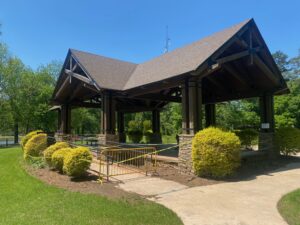PTC may put TAD plan on November city ballot
While only a consent agenda item with little if any discusion, the Peachtree City Council on Sept. 17 is expected to adopt a resolution calling for a public vote this November that would give the city the ability to engage in Tax Allocation District (TAD) projects.
The council at the January retreat adopted a resolution calling for a local government redevelopment powers referendum that was forwarded to the legislative delegation for approval and inclusion on the Nov. 3 ballot.
City staff noted in a Sept. 9 letter that the November vote would not initiate a TAD or any redevelopment actions, but would give the city the option of using the redevelopment powers and financing alternatives in the future.
Outgoing Fayette County Development Authority President Alan Durham at the Jan. 9 retreat provided information issues relating to a TAD and noted that Fayette County is running out of major office space needed for large companies, adding that “you can‘t have a corporate headquarters on septic.”
The council later in January adopted a resolution authorizing a November referendum that, if successful, would give the city the ability to explore the TAD process and put it up for a vote on a future referendum. The vote calling for the initial referendum was 4-0. Mayor Vanessa Fleisch was not at the meeting.
Councilman Eric Imker prior to the vote asked citizens to vote “yes” on the redevelopment powers referendum so the city can have options in the future.
While no specific area for a TAD project has been identified, former City Manager Jim Pennington at the January meeting said staff, in general terms, had been discussing areas such as Huddleston Road that have a potential for development. Pennington said the area is one of the last in the city, and one where there is no current sewer service, where such economic activity could come into play and where a TAD could work. Pennington said there might be other areas in the city that could also be investigated as TAD projects.
Durham at the retreat said TADs are instruments of the state’s Redevelopment Powers Law where local governments have the authority to sell bonds to finance infrastructure and other redevelopment costs within a specifically defined area (a TAD).
A TAD is established for the purpose of catalyzing investment by financing certain redevelopment activities in underdeveloped or blighted areas using public dollars.
Redevelopment costs are financed through the pledge of future incremental increases in property taxes generated by the resulting new development.
Typically upon creation, TADs have vacant commercial and residential properties, blighted conditions and numerous vacant buildings or are in need of significant environmental remediation, Durham said.
Explaining the tax increment, Durham said it is the difference between the amount of property tax revenue generated when the TAD is established (the “base” year) and the amount of property tax revenue generated after the TAD designation.
When a TAD is created, the Georgia Department of Revenue sets the base value for the district. Any growth in property tax revenues resulting from increases in property values above the base value are collected in a special fund and used for redevelopment costs in the TAD.
Only property taxes generated by the incremental increase in the values of these properties are available for use by the TAD.
Specific to a TAD is the revenue going to the school board and county. Both would have to agree to the TAD proposal since both would continue to receive taxes from the property at the frozen base rate until the bonds are retired.
As was done to create Atlantic Station in Atlanta or more recently in Fayetteville, the city designated a specific geographic area that has the potential for redevelopment. While the bulk of the TAD areas in Fayetteville include older retail sites, it also includes undeveloped sites in The Villages at Lafayette development on Ga. Highway 54 near downtown.













Leave a Comment
You must be logged in to post a comment.